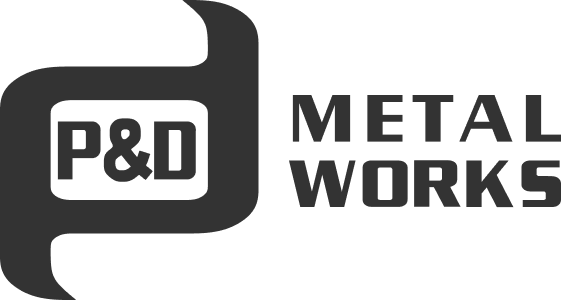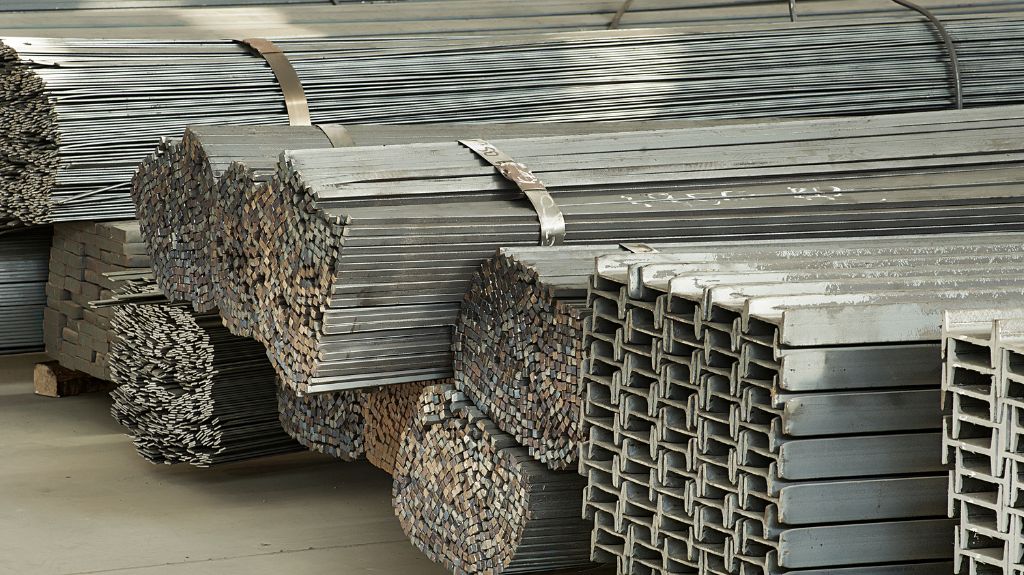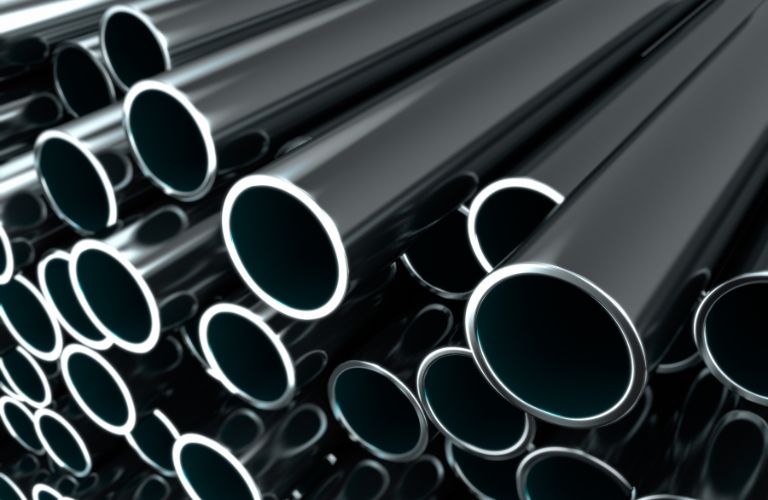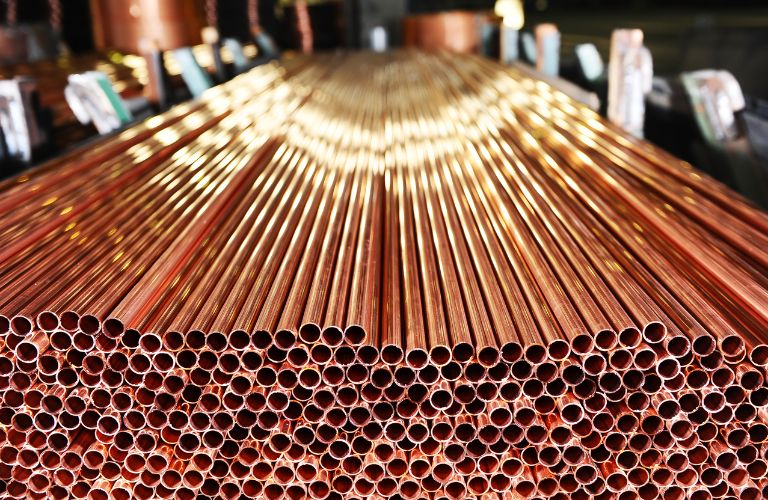Do you have a custom metal project you need manufactured? P&D Metal Works is here to help you design, manufacture, and install your custom metal project. When you have a custom metal fabrication in mind, the design, materials, and manufacturing processes are all vital and it is important to understand how to choose the right metal for your custom metal fabrication. We hope that this overview of metal materials and their best uses in custom metal fabrication will help get you started.
What Type of Metal is Best for My Custom Metal Project?
The metal material you choose is integral to the design of your project and many factors will help determine the best type of metal material to be used. The most common types of metal used in custom metal fabrication are – carbon steel, stainless steel, aluminum, and copper – but each is better suited for different projects.
Pros and Cons of Carbon Steel
When you choose carbon steel, you will have three primary materials to choose from – low-carbon steel, medium-carbon steel, and high-carbon steel. Carbon steel is an affordable option for custom metal fabrication and is an estimated ⅓ the cost of materials like aluminum. Steel is strong and durable, and can be utilized in a variety of industries with a variety of custom metal fabrication processes. The biggest drawback to steel is that it is corrosive and subject to rust. Low-carbon steel is ideal for internal machine parts and medium-carbon steel is stronger and harder, ideal for shafts, gears, and industrial projects. High-carbon steel is ideal for blades and tools.
Pros and Cons of Stainless Steel
Stainless steel is a popular choice in custom metal fabrication that provides a brighter, more aesthetic look than standard carbon steel. Stainless steel gets its reflective properties from the addition of aluminum and chromium to the alloy. A key advantage of stainless steel when compared to standard carbon steel is that it is corrosion resistant and ideal for a variety of custom metal projects. The drawback to stainless steel is the added cost it incurs when compared to carbon steel. Stainless steel is corrosion resistant, strong, and durable – properties that make it ideal for aviation and automotive parts, medical instruments, decorative metalwork, and more.
Pros and Cons of Aluminum
Aluminum can be employed in a variety of industries and applications and provides an impressive list of benefits to custom metal fabrication. Aluminum is lightweight, durable, conductive, and affordable – making it the ideal choice for a variety of projects. Aluminum is corrosive, but rather than rusting and corroding, it oxidizes to form a protective layer and prevent additional corrosion and discoloration. Metal fabrication projects that use aluminum include aviation parts, machined parts, and projects that are shaped and machined from billets of material. The few cons of aluminum are that it is resistant to welding and loses structure at high temperatures above 400℉.
Pros and Cons of Copper
Copper is the most ornamental metal material on this list and stands apart from the rest with its copper color. Copper is a highly-conductive material that conducts heat and electricity better than metal materials like steel and aluminum. The unique look and conductive properties of copper make it stand apart from other materials, but the high cost of copper is a key factor in the applications it is used for. The most common metal fabrication projects that use copper include electrical components, high-end cookware, and ornamental decorations.
READ MORE: How To Design and Fabricate Custom Metal Work
If you have a custom metal project you need manufactured, you may wonder – how do I choose the right metal for my custom metal fabrication? We hope that this quick overview of the pros and cons of different metal materials created by P&D Metal Works will help you make the right decision for your project. Contact P&D Metal Works today to get started on your custom metal project!




